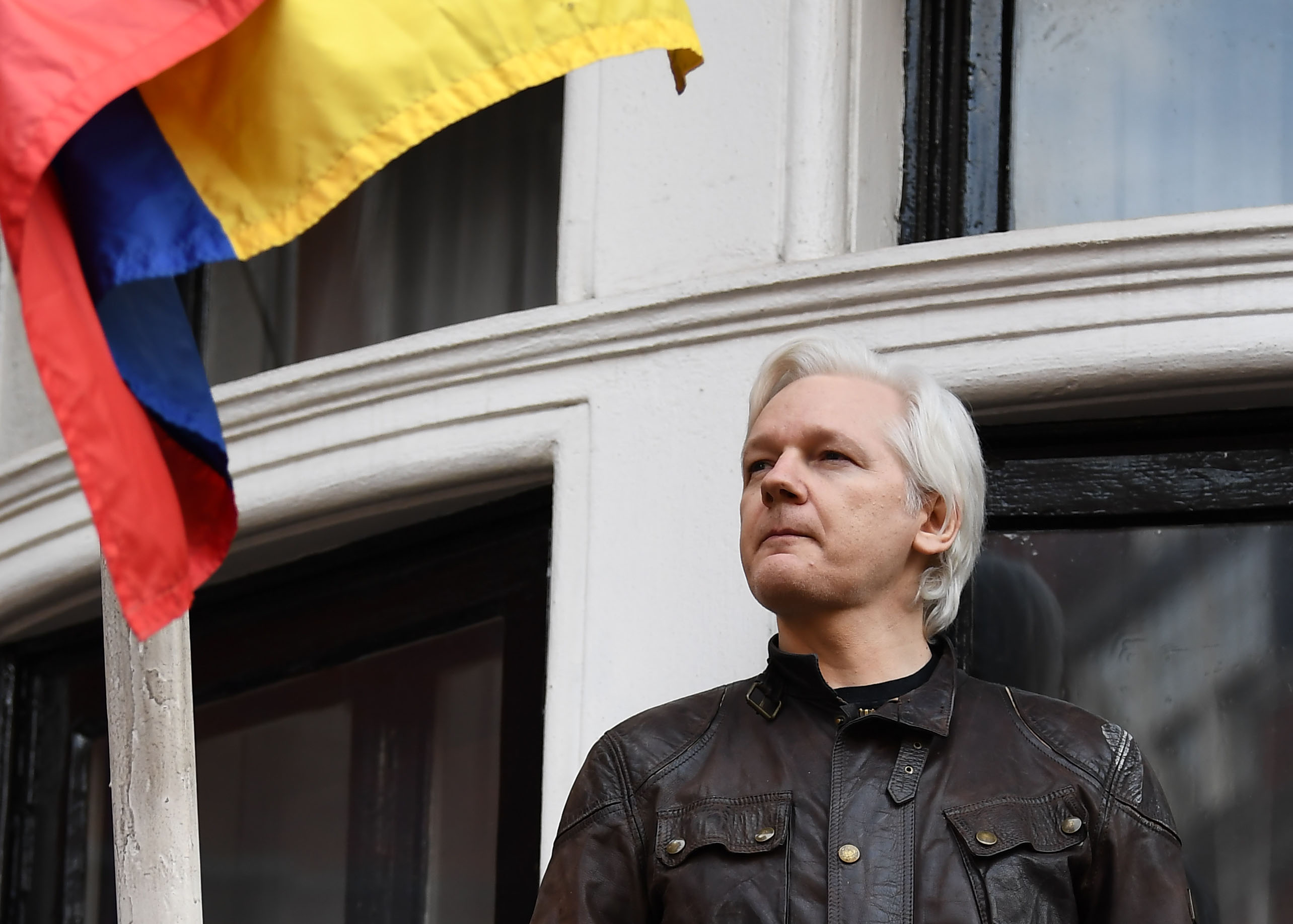US judge won’t unseal ‘charges’ against WikiLeaks’ Assange
Wikileaks founder Julian Assange is seeking to have the US unveil charges he believes have been prepared against him (Justin TALLIS)
Washington (AFP) – A US judge refused Wednesday to unseal charges that the government is believed to have prepared against WikiLeaks founder Julian Assange.
Judge Leonie Brinkema of the federal court in Alexandria, Virginia said that the Reporters Committee for Freedom of the Press, which petitioned for the unsealing order, had not proven the Assange case existed — despite it having been referenced in court documents from another case.
Assange, who has stayed under diplomatic protection in the Ecuadoran embassy in London since August 2012, says the United States plans to indict him over WikiLeaks’ publishing classified materials.
Assange says Washington wants him arrested and extradited if he steps foot outside the embassy.
He hopes that, by unsealing the charges, he may be able to protect himself from arrest in Britain.
US Justice Department authorities have refused for more than two years to acknowledge that they have investigated and prepared charges against the anti-secrecy advocate.
But in November, a document in a separate case that was inadvertently unsealed made two references to an “Assange” case.
Assange said the document demonstrated that he does face charges and demanded they be revealed; the Reporters Committee then filed a motion to have them unsealed.
But Brinkema said the existence of the case was not “sufficiently certain,” so the government could not be asked to reveal documents it might have, noting that investigations often must remain secret until they are completed and a suspect can be arrested.
“To hold otherwise would mean that any member of the public or press — by demanding access to judicial records based on little more than speculation — could effectively force the government to admit or deny that charges had been filed.”
The New York Times reported in November that it confirmed charges had indeed been drawn up against Assange, who maintains his publishing activities are protected like those of journalists.
It remains unclear what the charges specifically allege.
Assange originally fell afoul of US authorities after WikiLeaks published classified Pentagon and State Department documents in 2010.
During the 2016 US presidential race, the website created a huge stir when it published emails and documents from the campaign of Democratic candidate Hillary Clinton that US officials say were hacked by Russian intelligence and transferred to Assange.
Last week, Assange asked the Inter-American Commission on Human Rights to order President Donald Trump’s administration to unseal charges against him.
Disclaimer: This story is published from a syndicated feed. Siliconeer does not assume any liability for the above story. Validity of the above story is for 7 Days from original date of publishing. Content copyright AFP.


